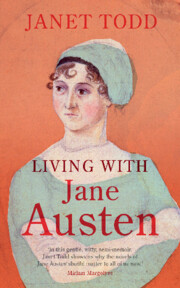Here's a multiple choice question for you.
Let's say you want to write a story set in an English village during World War II. This time period is recent enough that many still remember it. Do you:
a) Choose a village that is already on the map, research it, and hope you don't get anything wrong
b) Make up a village name and use a conglomerate of villages to "build" your own town
c) Say the heck with it and just set it in London
What I'm getting at here is a question that has been a part of the historical fiction writing world for a long time. If you're writing a historical, just how accurate do you need to be? There are some purists who refuse to use made-up places, insisting that if it's "historical" than that place really needs to exist.
The other side of the coin gives you more leeway. To use our example above, using a made-up village enables us to be completely free of error - i.e. you're not going to have anyone calling you up and saying, "But the village bakery isn't on that street!" or what-have-you.
This is a bit different when you get to bigger locales, however. Using major cities as locations is much easier. You have access to a lot more research, and though chances for errors are still possible, they're not as easy to make.
But...if you're writing a historical, are you cheating the reader by setting it in a fictional place?
What do you think?
Monday, August 17, 2009
Tuesday, August 11, 2009
Will It Blend? The Paranormal in the Historical
It isn't a particularly new trend, but it seems to be growing in popularity. While paranormal romances and fantasy fiction have soared, it seems as if the paranormal is finding its way into the historical. I'm not talking about the Pride and Prejudice Zombie thing which is parody and not really a true blend of genre. I'm more interested in books such as Suzanna Clarke's Jonahtan Strange & Mr. Norell or Amanda Grange's Mr. Darcy, Vampyre
I'm more interested in books such as Suzanna Clarke's Jonahtan Strange & Mr. Norell or Amanda Grange's Mr. Darcy, Vampyre .
.
Why is this popular? Any thoughts? I think this is a trend which will grown more into the mainstream of historical fiction and historical romance. Will it help or hinder these markets? Will it become a more solid sub-genre? I'm not even going to go into Steampunk which I think is poised for an explosion and I think it is worthy of its own post. But do you agree there is a growing trend?
As a historical writer, are you open to adding paranormal elements to your writing? As a reader, is this violating the purity of the genre?
 I'm more interested in books such as Suzanna Clarke's Jonahtan Strange & Mr. Norell or Amanda Grange's Mr. Darcy, Vampyre
I'm more interested in books such as Suzanna Clarke's Jonahtan Strange & Mr. Norell or Amanda Grange's Mr. Darcy, Vampyre .
. Why is this popular? Any thoughts? I think this is a trend which will grown more into the mainstream of historical fiction and historical romance. Will it help or hinder these markets? Will it become a more solid sub-genre? I'm not even going to go into Steampunk which I think is poised for an explosion and I think it is worthy of its own post. But do you agree there is a growing trend?
As a historical writer, are you open to adding paranormal elements to your writing? As a reader, is this violating the purity of the genre?
Subscribe to:
Comments (Atom)







